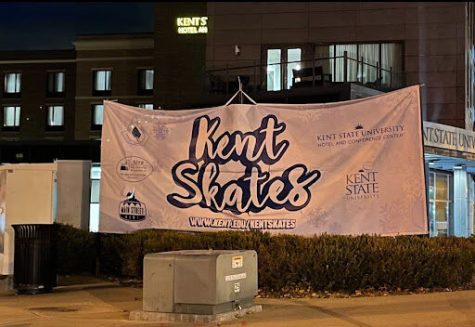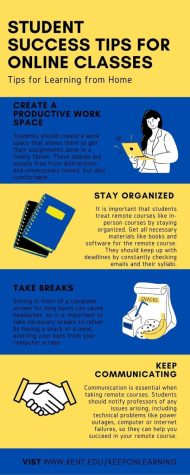Kent State moves forward with new textbook service
August 13, 2019
The cost of textbooks is at its highest point in history as prices continue to rise at four times the rate of inflation over the past 10 years, according to a CBS News report from January 2018. The report cites the College Board, saying the average college student spends over $1,000 a year on textbooks and materials.
Kent State is required by law to negotiate for lower textbook prices to reduce costs for students. Associate Provost for Academic Affairs Mandy Munro-Stasiuk and Associate Vice President for Student Affairs Jennifer Kulics negotiates on behalf of the university. When negotiating, they work directly with faculty, the bookstore and book publishers.
Due to rising textbook costs, Kent State tested out a new textbook program called Flash Books in fall 2018 and is now moving forward with the program. Munro-Stasiuk said students who bought their books last year using Flash Books saved more than $980,000 as opposed to buying them outside the program.
After students register for a course that uses Flash Books, a charge is automatically placed on their bursar account in addition to the course itself.
A total of 82 courses will use Flash Books in Fall 2019, up from only 23 courses last year, and Munro-Stasiuk said more are on the way.
“The number of courses this coming year has more than tripled, offering many more opportunities,” Munro-Stasiuk said.
Students enrolled in courses using Flash Books have the ability to opt out by going to the course in blackboard and following a tab on the left side of the screen.
For full-semester courses the last day for students to opt out of the program is August 28. The final opt-out date for courses in the first half of Fall semester is August 24. For courses in the second half of fall semester, the date is October 17.
However, junior public relations and criminology major Jennifer Noga ran into some problems opting out last year.
Noga is a part of more than 81% of college students who have trouble reading online textbooks, according to a 2017 study conducted by professors from Middle Tennessee State University. She said it was unclear if or how she could get a physical copy, and at the end of it all, she was still charged.
“The real kicker is they had a representative from the online book company come into class and make you log into flash line and try to open [the online book].” Noga said this prevented her from opting out and being reimbursed for the book because she had already opened it in class.
A total of 8,276 students were enrolled in the program last year with only 134 students opting out. Each student was notified that they were enrolled in a course using Flash Books through an email.
Flash Books saved students between $19.65 and $181.00 on textbooks last year according to a powerpoint provided by Eric Mansfield, director of University Media Relations.
Lawmakers tried in the past to introduce legislation seeking to alleviate the cost of textbooks for college students and encourage professors to use free-to-access textbooks, however none made it out of committee.
“Flash Books aligns with House Bill 49, which encourages universities to take steps to reduce the costs students pay for textbooks,” Mansfield said. “When we launched the program, Kent State joined about 100 universities in partnering with Barnes & Noble College for digital textbooks.”
Section 381.160 of House Bill 49 restricts state colleges from raising “in-state undergraduate instructional and general fees” in the fiscal years of 2018 and 2019. However, division (A)(3) of section 381.160 (pg. 3217-3218) states that these restrictions do not apply to “fees, which may appear directly on a student’s tuition bill as assessed by the institution’s bursar, to offset the cost of providing textbooks to students.” Community and Technical colleges are permitted to raise their in-state fees by no more than $10 per credit hour, according to House Bill 49.
A list of the courses using the program can be found on the Flash Books website.
David Williams is a reporter. Contact him at [email protected].


















